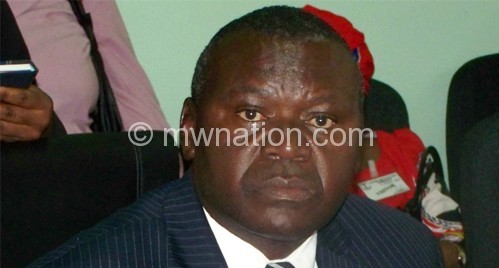Malawi cautioned on zero-aid budget

The country’s economic watchdogs and opposition political parties have backed President Peter Mutharika on the zero-aid budget, but have cautioned government to start planning long term on reduced donor budgetary support.
Malawi President Mutharika told a rally in the commercial city, Blantyre on Sunday that the budget, due to be presented to Parliament today by Finance Minister Goodall Gondwe, will totally be financed by local resources, christening it a zero-aid budget.
Economist Thomas Munthali said it is high time the country started implementing a gradual reduction of aid reliance, particularly on budget support.
“There is a difference between zero-deficit budget and zero-aid budget; this time around we have no option as the donors don’t want to give us their budget support, we have no choice. It’s a wake-up call to the country that it’s high time we started planning long term for this eventuality,” said Muthali.
Munthali, however, stressed that there is need for careful planning ahead of implementing gradual reduction of donor support, cautioning that it is not yet time for the country to completely end its reliance on donors.
“For a long time, as economists, we have been calling for the gradual reduction of aid dependence. We should start with the recurrent budget; we should be able to buy our own drugs, support schools, and fund the police without relying on foreigners. Let the donors be funding the development budget.
“We still need to get the donors back on table and help us in the meantime; we cannot afford an abrupt end to donor support,” said Munthali.
Chancellor College-based economist Ben Kalua also called for planning, but cautioned that implementing the zero-aid budget will demand prudence, failing which there will be serious negative effects on the economy.
“Looking back where we are coming from, it is also a concern because prudence is crucial to the implementation of this type of budget. Prudence has been a major challenge. We cannot afford to be making costly political decisions such as borrowing to fund unbudgeted for presidential trips.
“In the past, the huge appetite for local and international travel, which is unbudgeted for, has been causing over-borrowing. There is no more room for over-borrowing while implementing such a budget. You can disturb the economy if government is relying on local resources and start over-borrowing,” said Kalua.
Mutharika told the Njamba rally that the country will have to find the 40 percent budgetary chunk, normally pumped in by donors, from elsewhere, but said government will ensure continued funding to development programmes.
Meanwhile, opposition Malawi Congress Party (MCP) says is afraid that the proposed zero-aid budget might be a ploy to avoid donor accountability.
MCP spokespersons on finance, health and education were addressing a press conference in Lilongwe yesterday ahead of the five-week budget meeting of Parliament.
The party’s spokesperson on finance Joseph Njobvuyalema said while zero-aid budget was a good concept, it could be a mere defence mechanism because the government has been squeezed by donors following revelations of theft of government funding.
“Yes, the donors are on our neck, but we should also look at the capacity of the country to generate enough revenue to meet all obligations. Otherwise, this might be a tool to punish Malawians,” said Njobvuyalema.
On its part, United Democratic Front (UDF) chief whip Lillian Patel also appealed to government to avoid squeezing already overburdened taxpayers during implementation of its zero-aid budget.
“The cost of living is unbearable and people are already heavily taxed. Government should be encouraging small-scale business and that can be done by lowering interest rates which are very high,” Patel said.
Donors have withheld about $150 million in budgetary support following revelations of Cashgate when billions of kwacha were siphoned from government by public officers and private sector.





